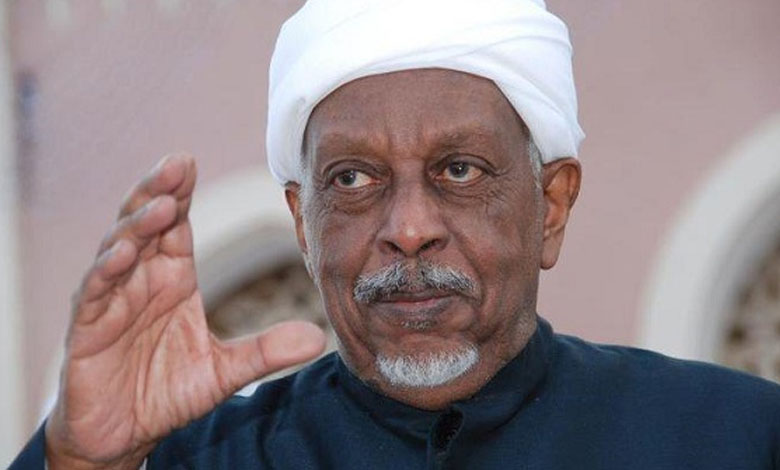Brotherhood leaders seek to regain control over the rule of Sudan

Since the emergence of the Muslim Brotherhood organization in Sudan in 1949, the organization has changed its name several times, from the Islamic Liberation Movement to the Muslim Brotherhood, then the Charter Front, then the Islamic Front, and finally the National Congress, from which the People’s Congress was affiliated in the 1990s, over seven decades.
The manifestations of the group’s failure to rule Sudan are also incalculable, ending with millions of Sudanese leaving in a massive revolution that has been ongoing for more than three years to topple the Brotherhood regime; What made them hold secret plans in order to revive their activities in Sudan through a series of faces… Who are the most prominent?
Mohammed Uthman al-Mirghani
After 12 years in Egypt, Mohammed Uthman al-Mirghani al-Khatim, head of the Democratic Unionist Party, returned to Khartoum from Egypt, after years of fleeing Sudan following disagreements within his party and preferring to ally with the Brotherhood at a time observers say is highly sensitive to the implementation of the framework agreement.
Informed sources said that al-Mirghani decided to serve as a back door allowing the Muslim Brotherhood to dominate Sudan and return to the political scene after the popular rejection of their presence in power. Informed sources added that al-Mirghani struck a deal with the leaders of the Muslim Brotherhood, allowing him to seek the help of their supporters and the followers of the former Sudanese regime, in order to increase his control over the political scene in return for their gradual return.
The sources added that al-Mirghani’s political thought is almost identical to that of the Muslim Brotherhood; “Making sense for the coalition, al-Mirghani is relying on exploiting ordinary people in Sudan’s poorest areas to spread his religious party’s popularity.”
Abdel Hay Youssef
A Sudanese religious preacher is considered one of the most prominent influential clerics in the Muslim Brotherhood state due to his close proximity to the ousted regime, Omar al-Bashir. This relationship granted him many privileges, including membership and presidency of many organizations, institutions, and organizations.
“During 2019, following Bashir’s arrest, prosecutors issued an arrest warrant for Abdel Hay over a $5 million claim he received for a channel he was broadcasting from the deposed regime;” He fled to Turkey with dozens of other Muslim Brotherhood figures and resumed broadcasting the Taiba TV channel and used it as a platform to attack the transitional government.
He has issued several inflammatory fatwas prohibiting the transfer of funds to Sudanese workers abroad via banks on the grounds that the government is dishonest and forbidden. Following the military coup against Hamdok’s government on October 25, 2021, and the issuance of decrees by the Brotherhood that restored the political scene, Abdel Hay remained silent, and he did not issue any fatwa about the coup, even if the dream of the group’s return to power began to decline again, a new fatwa came out calling for a coup against the military, and also pointed out that the framework agreement is a betrayal of God and His Messenger, calling for the isolation of al-Burhan.
Ibrahim Al-Ghandour
Ibrahim Ghandour, a leader of the National Congress Party of the Muslim Brotherhood in Sudan, was arrested twice on charges of involvement in planning acts of sabotage, under orders from a task force that aimed to “dismantle and prevent the return of al-Bashir’s rule, which ended in 2019, as well as financing terrorism.”
Ibrahim Ghandour, head of the National Congress Party, which was dissolved after the Sudanese revolution, has demanded all parties agree on a transitional period governed by an agreed regime and a consensual civilian government.
This is necessary if the political parties want “the military to return to its barracks and hand over power,” Ghandour said.












